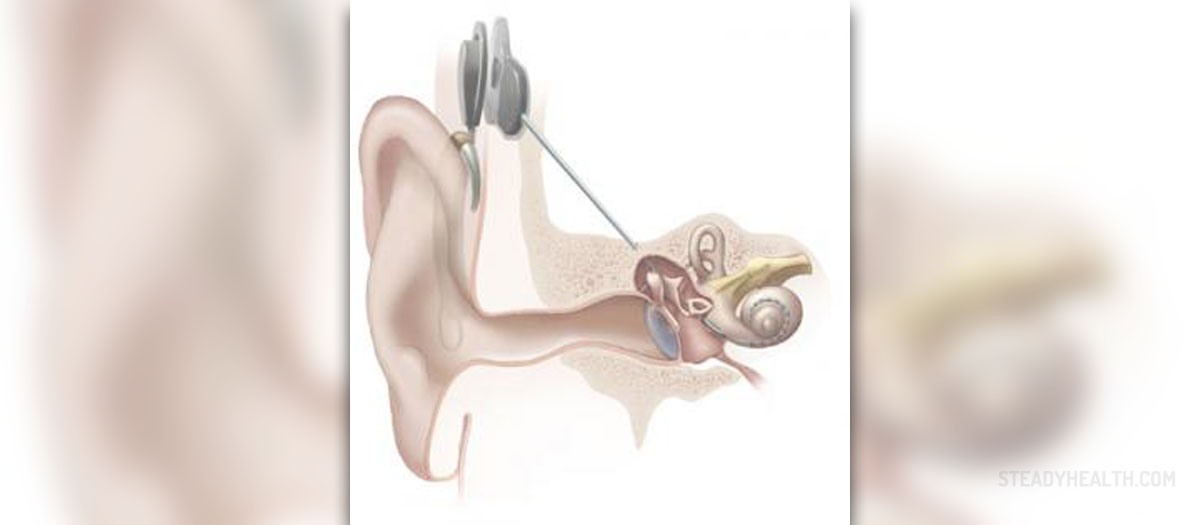
Cochlear Implant - Overview
A cochlear implant stands for a small and rather complex electronic device that can effectively provide a sense of sound in people who are suffering from hearing loss. Cochlear implant surgery is performed in people who are profoundly deaf or severely hard-of-hearing. The very implant consists of an external part that is located behind the ear and internal part that is surgically inserted under the skin. The implant contains a microphone, a speech processor, a transmitter and receiver, and an electrode array. A microphone is in charge with picking up sounds from the environment, a speech processor allows selection of the picked up sounds while a transmitter and receiver/ stimulator transforms received signals into electrical impulses. All these impulses are then sent to different parts of the auditory nerve via an electrode array.
A cochlear implant allows bypassing damaged portions of the ear and subsequent direct stimulation of the auditory nerve. Once the auditory nerve receives the signals it sends information to the brain and the brain recognizes signals as a sound. Once the cochlear implant is inserted a patient will need some time to learn or relearn hearing. The device is very helpful when it comes to recognizing warning signals, understanding other sounds in the environment and making conversation in person and by telephone.
Who are Candidates for Cochlear Implants?
The most suitable candidates for cochlear implants are both, children and adults, who are deaf or severely hard-of-hearing. Adults who have lost the hearing ability can benefit from the device since they learn to associate the signal sent by an implant with the sounds they have already learned to recognize. In children who are deaf cochlear implant can help with speech, language and social skills. The procedure is commonly performed in children between the age of 2 and 6. This way the children are early exposed to sounds that are important for them to learn speech and language skills.
Patients undergo the surgical procedure but they also need to learn or relearn the sense of hearing. There are several health care professionals who decide whether the person will benefit from cochlear implant and cochlear-implant surgeon is only one of them. There are several possible complications of the surgery but they tend not to occur frequently. Apart from potential complications a patient should also take into consideration learning to interpret the sounds created by the implant. This process may take time and requires a lot of practice and patience. The very learning process requires assistance of well- experienced speech-language pathologists and audiologists.

















Your thoughts on this
Loading...